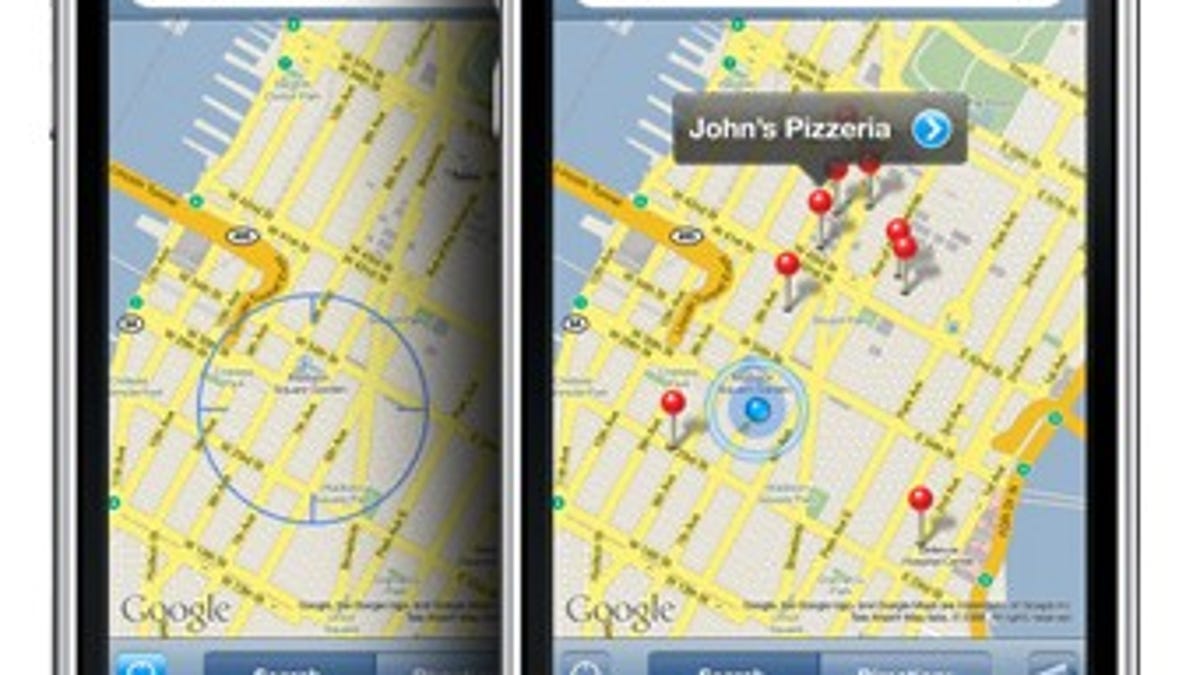Why the iPhone 3G will change the GPS game
With the introduction of the Apple iPhone 3G with assisted GPS, CNET editors wonder how it will affect the portable navigation system industry.

OK, maybe I was wrong. I'm a big enough person to admit it. You see, a couple of months ago, I wrote that there was no way that smartphones and cell phones with integrated GPS would take over the portable navigation device (PND) space, but now I'm having second thoughts. I'm not saying that PNDs will go the way of the dodo, but it could go the way of the PDA when smartphones really came on the scene. They'll still exist, but the demand will be less and their reach will be limited. They'll be an afterthought. Why the change of heart? Does this have anything to do with today's announcement of the Apple iPhone 3G with integrated GPS? Yes (more on this in a bit), but I also started having these thoughts over the weekend.
You see, I had to venture out to Oakland for a housewarming party on Saturday and if you're familiar with the Bay Area, you know that Oakland is just a hop, skip, and a jump from San Francisco, but it's unfamiliar territory to me as I rarely venture outside my SF bubble. So there I am sitting in my apartment, looking up directions on my laptop and feeling pretty foolish for not having an in-car GPS (hey, I didn't have anything to review at the time!). I also couldn't print out directions (hard to do without a printer) nor did I feel like scribbling down instructions on a piece of paper. Then it dawned on me that I could use my
It wasn't my ideal choice, since I was worried about viewing maps on the smaller screen, but it's all I had at the time. I entered my destination onto the Curve, hit the road, and got to the party without a hitch and with a new appreciation and perspective on this type of GPS convergence. I was able to plot multiple stops along my route, and the voice directions were loud enough that I could get away without looking at the screen much. In short, I pretty much got the same experience of a GPS on my smartphone that I would with a standalone device.
So going back to today's iPhone 3G announcement. Even before today's official unveiling, there was a report from Popular Mechanics that GPS manufacturers were "shaking in their boots" about the prospect of a GPS-enabled iPhone and now I'm thinking rightfully so. It's not that the iPhone is the first smartphone to offer this feature. Far from it; there's the
Like the smartphone's other features--Web browsing, multimedia--it's not that the iPhone offers anything revolutionary but what it offers is a better user experience. Panning in and out of maps, the redraw rate--it's all smoother on the iPhone. Plus, you benefit from a 3.5-inch touch screen, which is right in line with the entry- to midlevel PNDs on the market today. Add to that the $199 price tag, the fact that you're getting about three gadgets in one and you're looking at a very attractive package. So with all this functionality, what's to attract a consumer to a standalone product? Garmin seems to have acknowledged the changing landscape, as it has already announced Nuvifone, and TomTom reportedly has navigation software for the iPhone ready to go.
Of course, there will always be purists and again, I'm not saying that portable navigation systems will be disappear for good, but as these converged devices become more sophisticated, more affordable, and easier to use, you have to wonder about the state of PNDs. Do you think I'm totally off base here? How do you think the iPhone 3G, or any GPS-enabled phone, will affect the GPS industry?

